The Spirit of Onam: A Celebration of Community, Equality, and a New Beginning
In the lush, rain-soaked lands of Kerala, the arrival of Onam brings with it more than just the promise of celebration—it symbolizes a new beginning. For the people of Kerala, Onam transcends the boundaries of a religious festival; it is a collective embrace of community, equality, and nature. Rooted deeply in agricultural traditions, Onam is a time when even those facing hardships can join in a joyous celebration of unity and hope.
The story of Onam is intertwined with the legend of King Mahabali, a benevolent ruler who, it is said, once governed Kerala with fairness and compassion. Under his reign, everyone was treated equally, no one went hungry, and prosperity flowed through the land. The annual return of Mahabali during Onam is seen as a symbolic time of hope, reminding people of a golden age where harmony prevailed, and no one was left behind.
Yet beyond the myth, Onam is also about Kerala's farmers and laborers who, despite their year-long struggles, come together for a few days of celebration. These moments are steeped in simplicity and togetherness, reminding us all of the deeper essence of Onam—a time to cherish community, celebrate equality, and reconnect with nature.
(Read here about the details on Sadhya and the mythological story of Onam)
A Celebration Born from the Fields
Long before Onam was marked with lavish celebrations and cultural showcases, it was a festival grounded in agriculture. For centuries, farmers across Kerala would look forward to the arrival of the harvest season. After months of toil under the sun, sowing seeds and nurturing crops, the time of Onam heralded the moment when the fruits of their labor would finally be reaped.
For many, the festival was their one chance to indulge in life's simple luxuries. Farmers, who had spent much of the year living frugally, could now afford new clothes, sumptuous meals, and the joy of community gatherings. It was a time to put aside the struggles of the year and celebrate with pride. New clothes, or Onakkodi, symbolized the new beginnings that the festival promised.
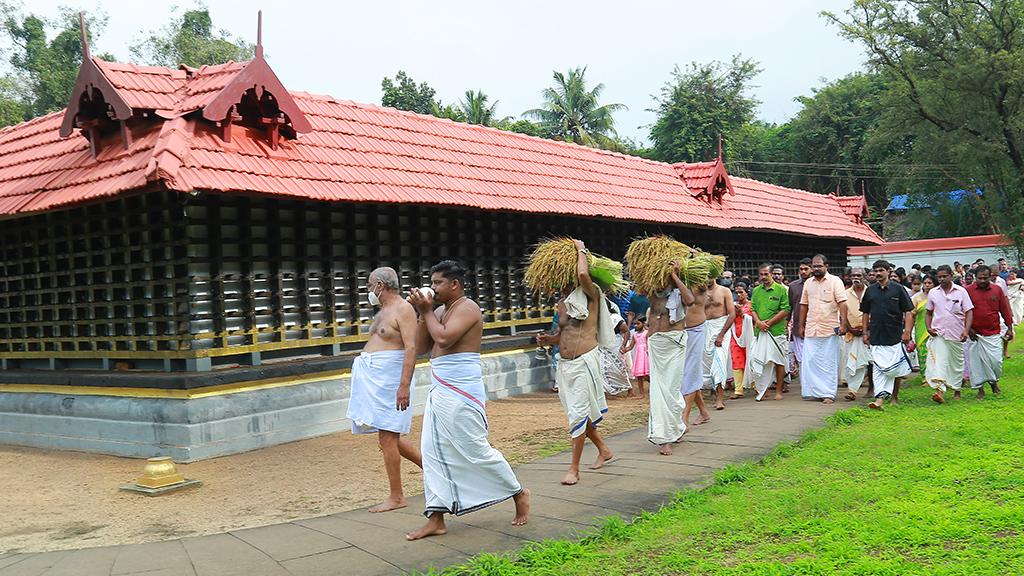
Onam Harvest Rituals
No matter how modest one’s means, everyone would don fresh attire as a mark of respect to the community and the spirit of Onam. It was this collective sense of renewal that created an atmosphere of equality. Whether rich or poor, everyone was bound by the shared experience of harvest and hope.
The Sadya, or grand feast, is another central element of Onam, traditionally served on banana leaves. The meals were often made with local, seasonal ingredients, reflecting Kerala's agricultural abundance. For many, this was the most elaborate meal of the year, symbolizing the spirit of sharing and community. Even those who didn’t have much ensured that their neighbors had enough to eat. The sense of abundance, fleeting as it may have been, was celebrated not through individual wealth but through collective joy.
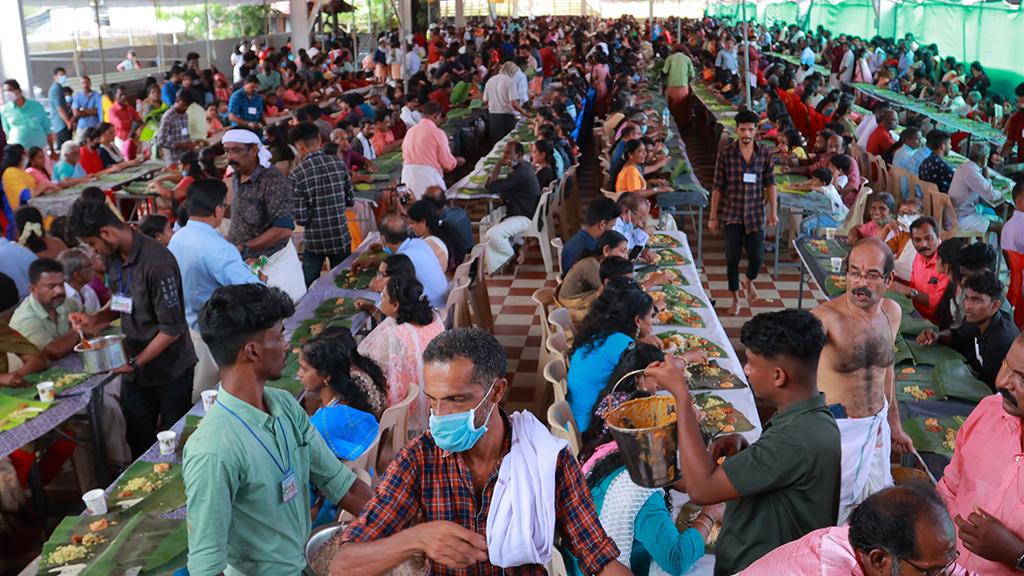
Onam Sadhya
A Festival of Equality
At the heart of Onam lies the value of equality. Regardless of caste, creed, or social status, Onam is a festival where everyone comes together to celebrate as one. The mythical reign of King Mahabali, where no one was discriminated against or deprived, serves as a reminder of what the festival stands for. This sense of equality is evident in the way the festival is celebrated.
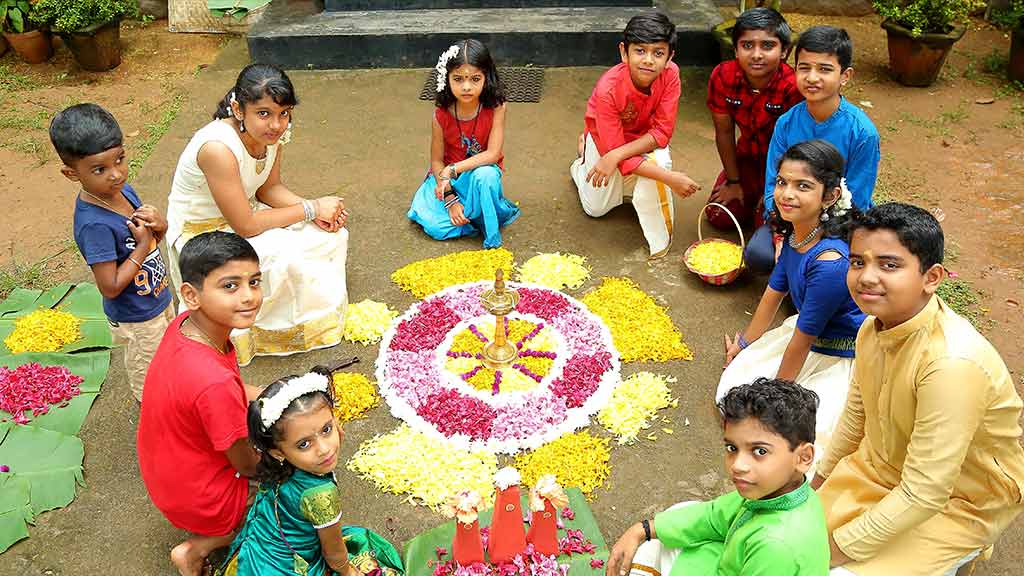
Pookalam Decoration
The Pookalam, a floral carpet that is an essential part of Onam, is a community effort. People from all walks of life come together to create intricate flower designs, working side by side, reflecting the unity and harmony of Mahabali’s reign.
Similarly, the Vallamkali, or snake boat races, another significant part of Onam, is a collective activity. It is not just about winning but about teamwork and the shared experience of paddling in unison. The sight of massive boats gliding through Kerala’s backwaters, propelled by dozens of rowers in sync, captures the spirit of unity and equality that Onam fosters.
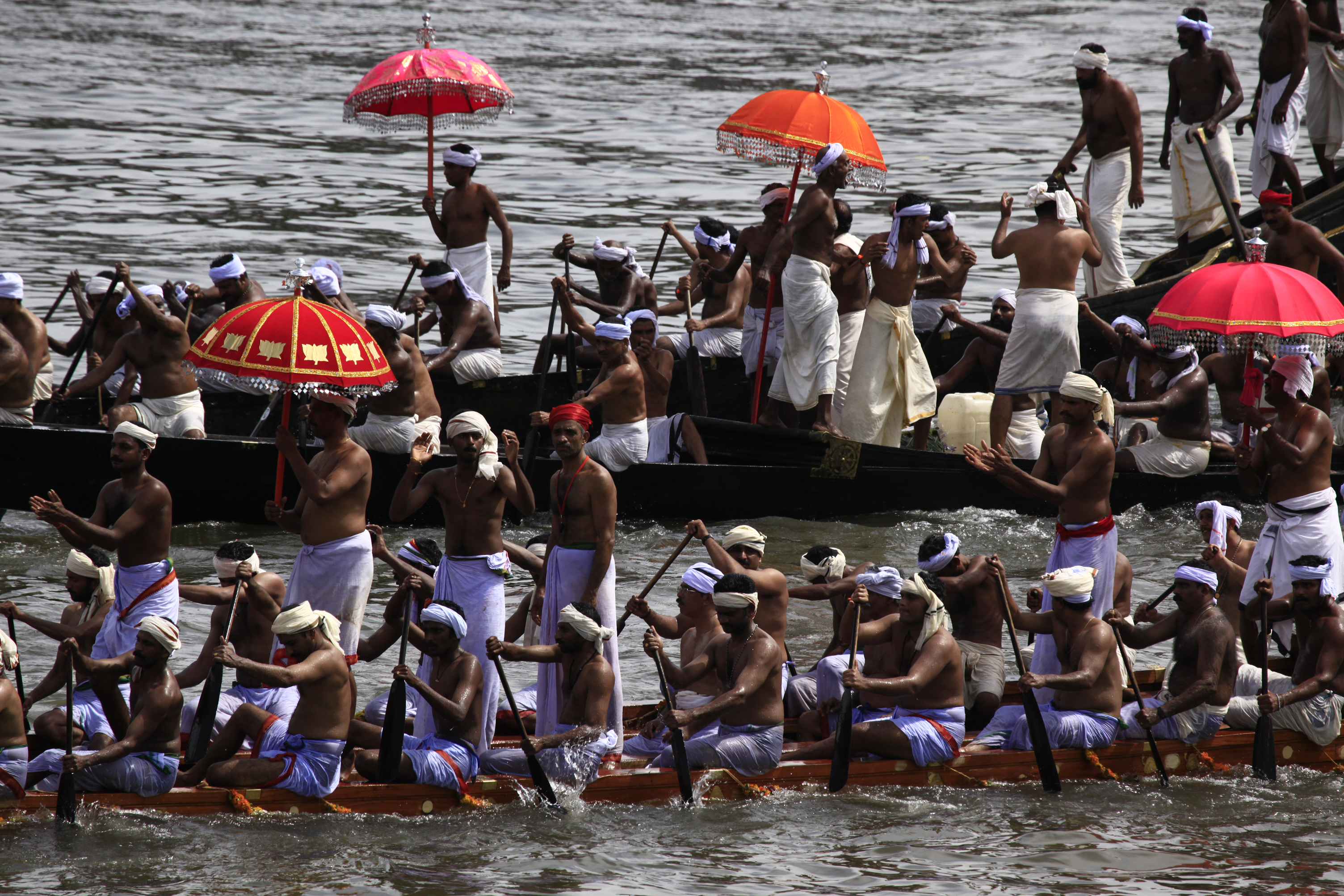
Vallam Kali
Onam’s celebration of equality is not just symbolic—it has real implications for the social fabric of Kerala. In a society where class and caste have historically shaped relationships, Onam serves as a moment where these distinctions are temporarily dissolved. It is a festival that reminds everyone of their shared humanity and encourages the spirit of togetherness and mutual respect.
Onam and Nature: Celebrating a New Beginning
Onam arrives with the end of the monsoon season, just as Kerala’s landscape is rejuvenated by the rain. The vibrant greens of the fields and the blooming flowers that adorn the Pookalam symbolize renewal and abundance. In many ways, Onam is also a celebration of nature itself.
Historically, Onam was the time when farmers thanked the land for its bounty. The harvest season was not just an economic event but a spiritual one, as the farmers understood their dependence on the earth and its resources. Onam’s rituals and traditions, many of which are rooted in Kerala’s agrarian past, reflect this deep connection to nature.
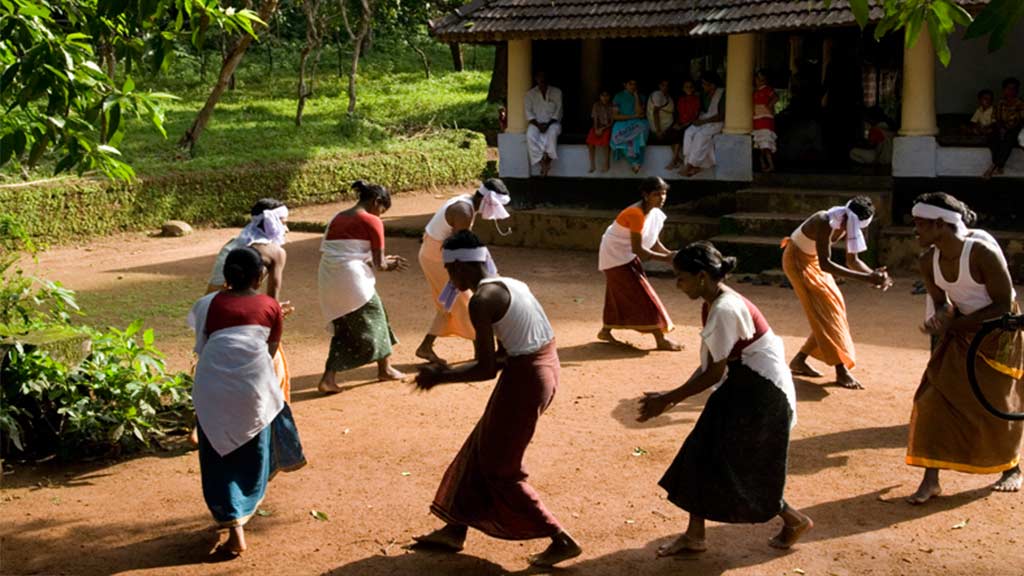
Onam Dance or Chavittukali
In today’s context, Onam can also be seen as a reminder of the importance of sustainability and our relationship with the environment. As the world grapples with the effects of climate change, festivals like Onam remind us of the need to live in harmony with nature.
The community spirit that Onam fosters can serve as an inspiration for collective action in preserving the environment for future generations. For instance, the traditional Sadya uses locally sourced ingredients, reducing the need for long-distance transportation and minimizing the environmental impact. The communal aspect of sharing meals also encourages less waste and more mindful consumption—an ethos that aligns with sustainable living.
Onam’s Modern Relevance: A Call for Unity and Change
While Onam is deeply rooted in tradition, its message is more relevant than ever in today’s world. As modern society becomes increasingly fast-paced and individualistic, the community-driven values of Onam offer a refreshing contrast. The festival encourages us to slow down, reconnect with our roots, and appreciate the importance of community.
It is a time to put aside our differences, however temporary, and come together in celebration. This message of unity is especially important in a world that often feels divided. Moreover, the environmental consciousness that is inherent in Onam’s agricultural roots can inspire us to take action in the face of climate change.
By celebrating the earth’s bounty and living sustainably, we honor the traditions of the past while working towards a better future. At its core, Onam is a festival that transcends time and circumstance. It is a celebration of the human spirit, of equality, and of our relationship with the earth.
For the farmers of Kerala, who may have faced hardship throughout the year, Onam provided a brief but powerful reminder that joy, abundance, and community are still within reach. As we continue to navigate the challenges of the modern world, Onam’s lessons are more relevant than ever. The festival’s celebration of community, equality, and nature offers a roadmap for a more compassionate, inclusive, and sustainable future.
So, as the flowers of the Pookalam bloom and the drums of the snake boat races echo through the backwaters, let us remember the true spirit of Onam—a celebration of new beginnings, togetherness, and hope.
How about celebrating Onam with us? We’d love to have you at our place for a memorable Sadhya feast! Please contact us to know more.
(We are indebted to https://www.keralatourism.org/onam/ for the photos.)
